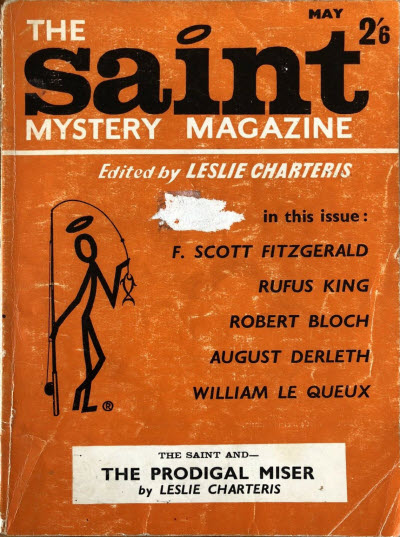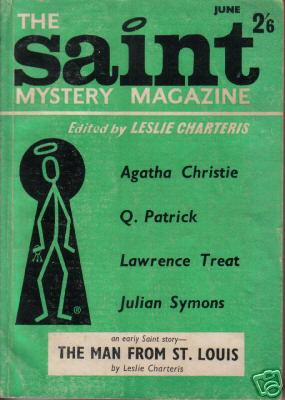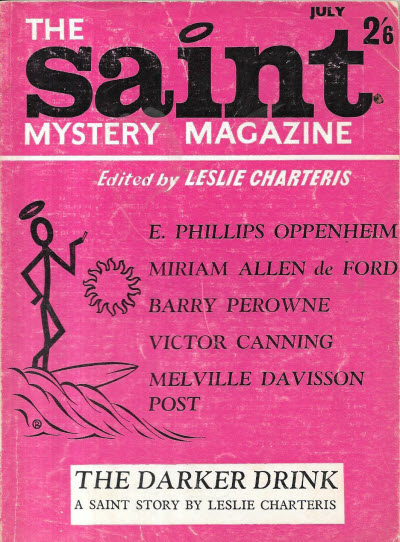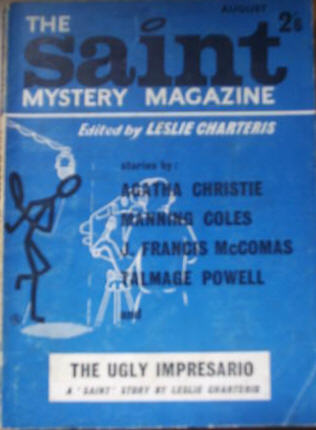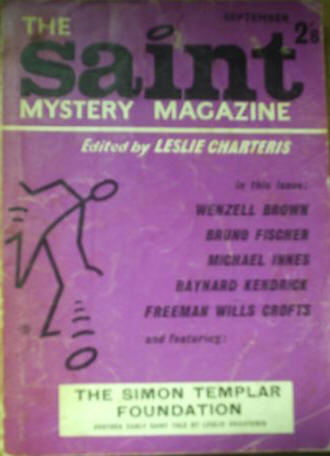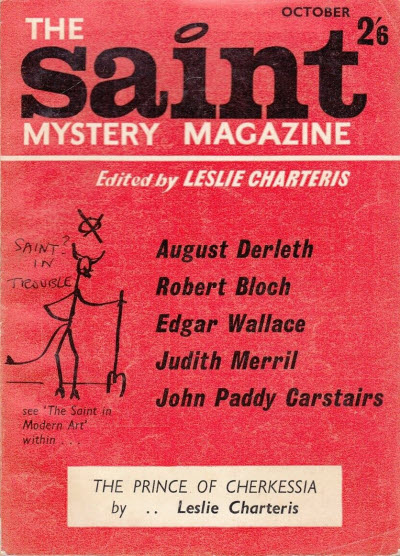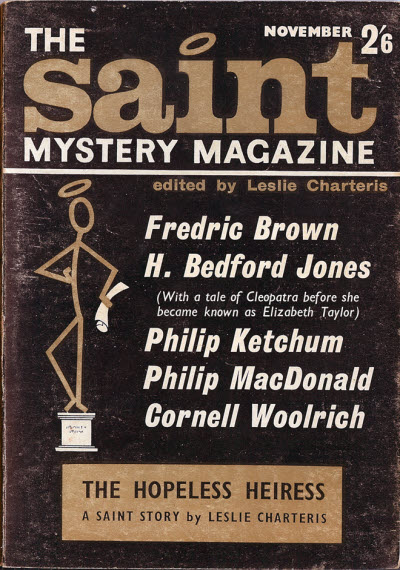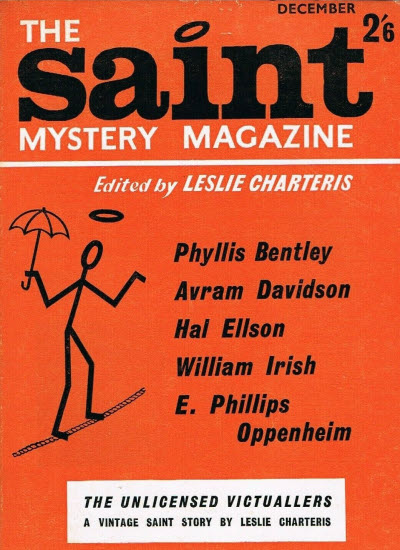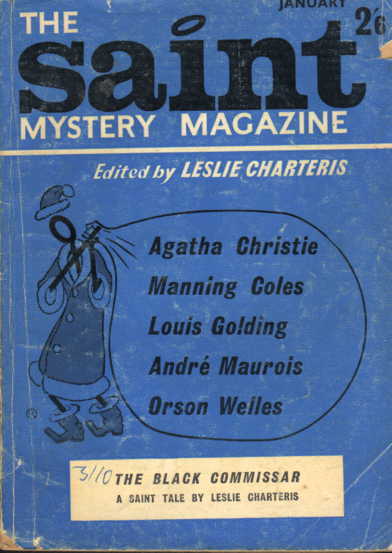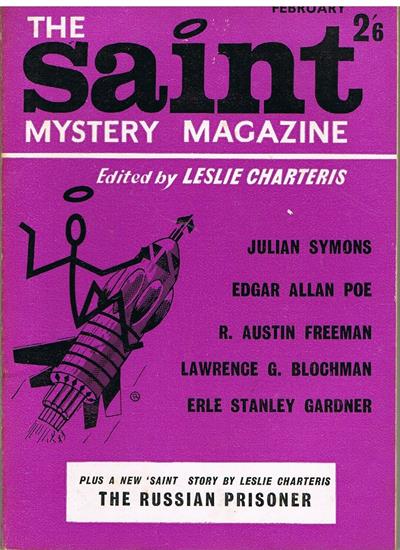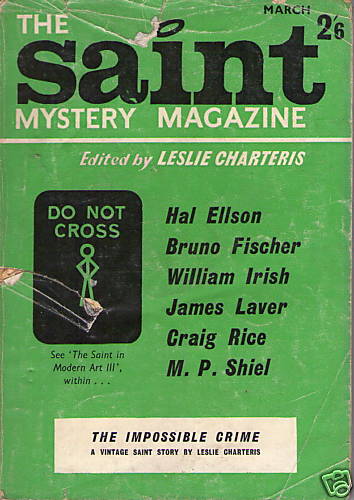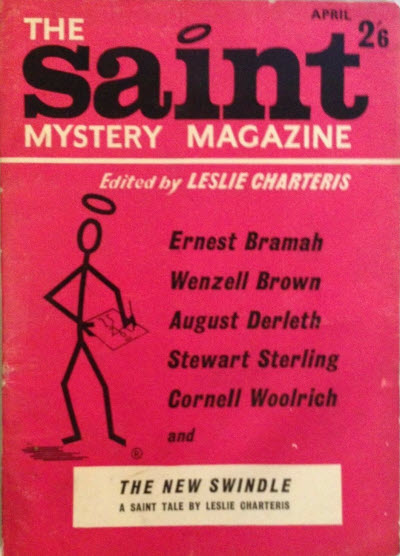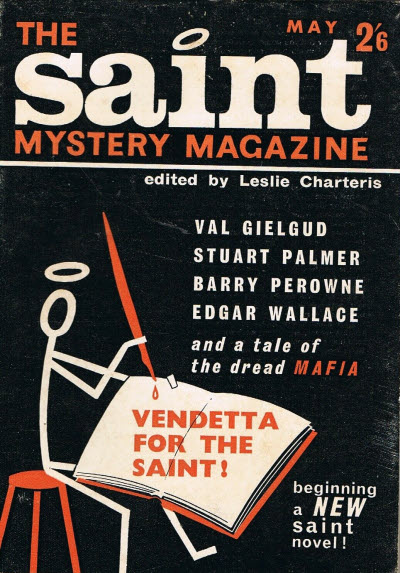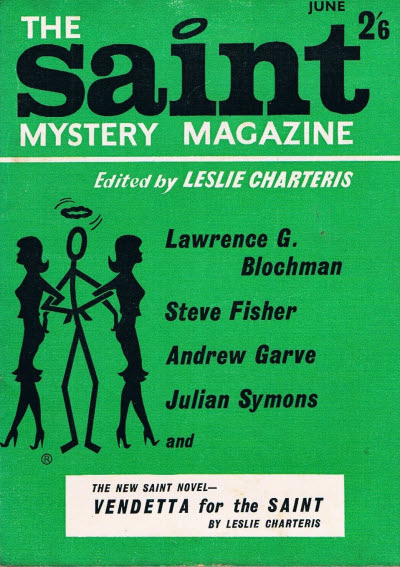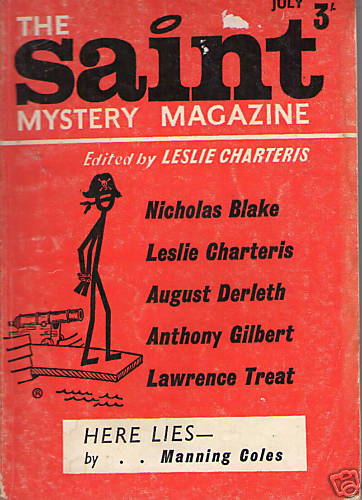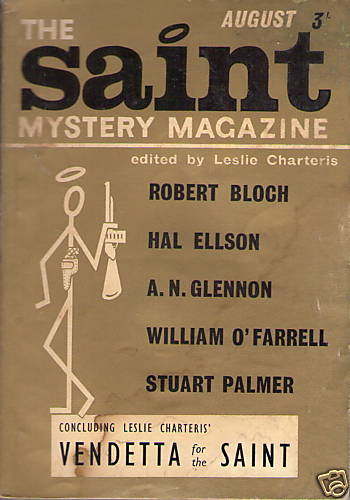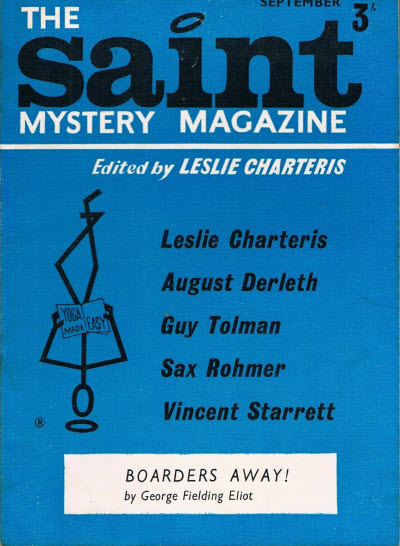-
The Saint Mystery Magazine (UK) [Vol. 9 No. 3, May 1963] ed. Hans Stefan Santesson (Atlas Publishing & Distributing Co. Ltd., 2/6d, digest)
- 2 · The Prodigal Miser [Simon Templar (The Saint)] · Leslie Charteris · nv The Saint Mystery Magazine April 1963
- 20 · The Dance · F. Scott Fitzgerald · ss The Red Book Magazine June 1926
- 32 · Mission for Mei Wong [Mr. Mei Wong] · Charlotte & Dan Ross · ss
- 37 · The Case of the Pleasant Strangers [Dr. Colin Starr] · Rufus King · ss Redbook Magazine June 1942
- 53 · The Living End · Robert Bloch · ss The Saint Mystery Magazine May 1963
- 58 · Dear Grace · August Derleth · ar
- 69 · St. Petersburg [Miss Clarissa Thornton-Thorpe] · John Stephens · ss (r)
- 73 · The Man in the Round Spectacles · William Le Queux · ss The Grand Magazine July 1922
- 85 · The Law of Arrest · E. L. Bulwer · ss
- 88 · Old Eye · Arne Mann · ss
- 96 · Ramraj · Ranjee Shahani · ss
- 102 · The Specialist · James Reach · ss
